The 2023 NHL Playoffs are in the middle of the conference finals. To get here, stoic efforts of heroism and jaw-dropping theatrics from superstars and fourth-liners alike dragged their team to the halfway mark. On the receiving end of those results, find these ten players. For every celebration of an underdog overcoming all odds, there are those who disappointed fans, media, management, and personal expectations. Various names could have made the top ten, but limiting the list to a maximum of two players per team was done to avoid adding the bulk of the Toronto Maple Leafs and Boston Bruins rosters.
10. Mathew Barzal, New York Islanders
Admittedly, it is unfair to label Mathew Barzal’s postseason disappointing from most perspectives. The forward returned from a lower-body injury, hindering his best skill, skating, from being a driving force in his game. His teammate and frequent linemate, Bo Horvat, could swap places with him. Horvat also lacked the scoring the New York Islanders craved, just two points in six games, but he did provide good defence for the Islanders in six postseason games – Barzal did not. Barzal missed the final 23 regular season games with his lower-body injury, returning for Game 1 against the Carolina Hurricanes. Through the six games, his Corsi For was a blistering 61 percent. His deployment by head coach Lane Lambert does help boost the number, as he started 23.8 percent of his shifts in the offensive zone, meaning fewer shots toward his netminder while he was on the ice.
Barzal only finished with two goals through six games while defensively hindering the Islanders. One giveaway to 12 takeaways, a minus-11 ratio, is only behind Jack Hughes, 10-26, for worst in the postseason. While Barzal is not known for his defensive ability, his poor numbers and bleak scoring output are undoubtedly disappointing. The caveat, his returning from injury, is a fair reason to tempter expectations; however, he averaged over 19 minutes per game through the first three games, and his ice time only decreased significantly following Game 3, where he had a career-worst five giveaways in the playoffs. His injury does save him from being discussed heavily, especially with Horvat’s equally disappointing turnout, but his defensive deficiencies is why he finds himself on the list.
9. Alexis Lafrenière, New York Rangers
Alexis Lafrenière’s struggles transitioning to the NHL are well-documented, but the narrative appeared to be changing. The first-overall pick in the 2020 NHL Draft had his best regular season this year, putting up 16 goals and 23 assists in 81 games… to follow it up with goose eggs in the playoffs. A pointless output is horrendous, especially considering his crucial contributions to the New York Rangers Eastern Conference Final run last year, where he had a respectable two goals and nine assists for 11 points in 20 games. His underlying numbers weren’t awful either, but they weren’t great. Fifty-four percent Corsi For, an even giveaway-takeaway ratio, and an even on-ice goal differential of two-apiece show he did not negatively impact the team. Nevertheless, zero points in seven games is shocking.
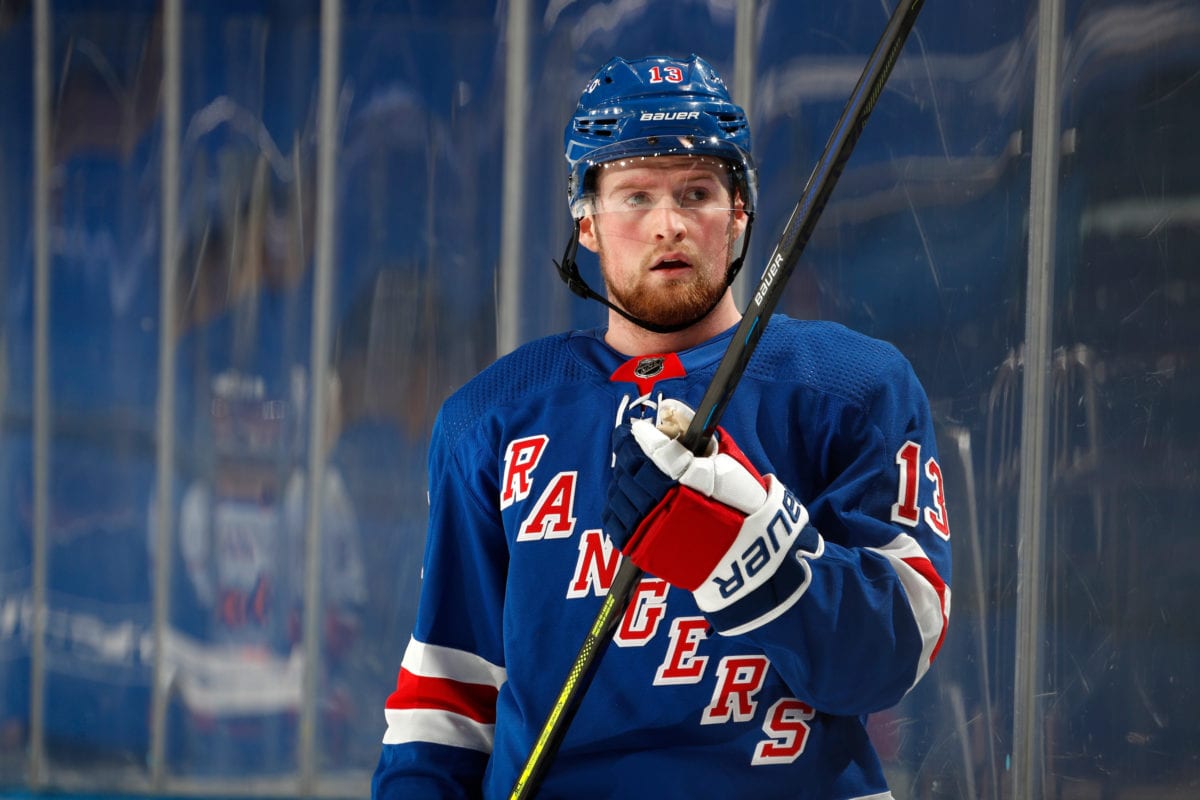
Lafrenière’s poor play will only feed the trade talks surrounding his name, but his awful results are only muddying the forward’s perceived trade value. The expectations of him were not astronomically high, like superstars who will fall further down this list. Still, a player who should be verging on stardom laying an egg after his team loads up for a run at the Stanley Cup is unforgivable. His analytics proved to be average, which should shield him from this criticism. Still, like other players on this list, good underlying numbers mean nothing if your team doesn’t win games in the postseason. Ask the Maple Leafs if their ‘Deserve To Win O’Meter’ results provide more than mere moral victories.
8. Timo Meier, New Jersey Devils
The easy choice to choose for the New Jersey Devils is Vitek Vanecek. The Devils’ starting goalie fumbled his opportunity to solidify himself as a mainstay in the NHL during Round 1. He then lost the opportunity once again when backup Akira Schmid was struggling against the Hurricanes in the second round; however, Timo Meier, arguably the biggest acquisition of the 2023 NHL Trade Deadline, for my money, was more disappointing.
Meier went scoreless through his first eight playoff games as a Devil, only picking up his four points of the playoffs (two goals, two assists) in the final three games of his team’s loss to the Canes. He did miss Game 1 of the second round due to an upper-body injury following a questionable hit from the Rangers’ Jacob Trouba, but nonetheless, he should have been better.
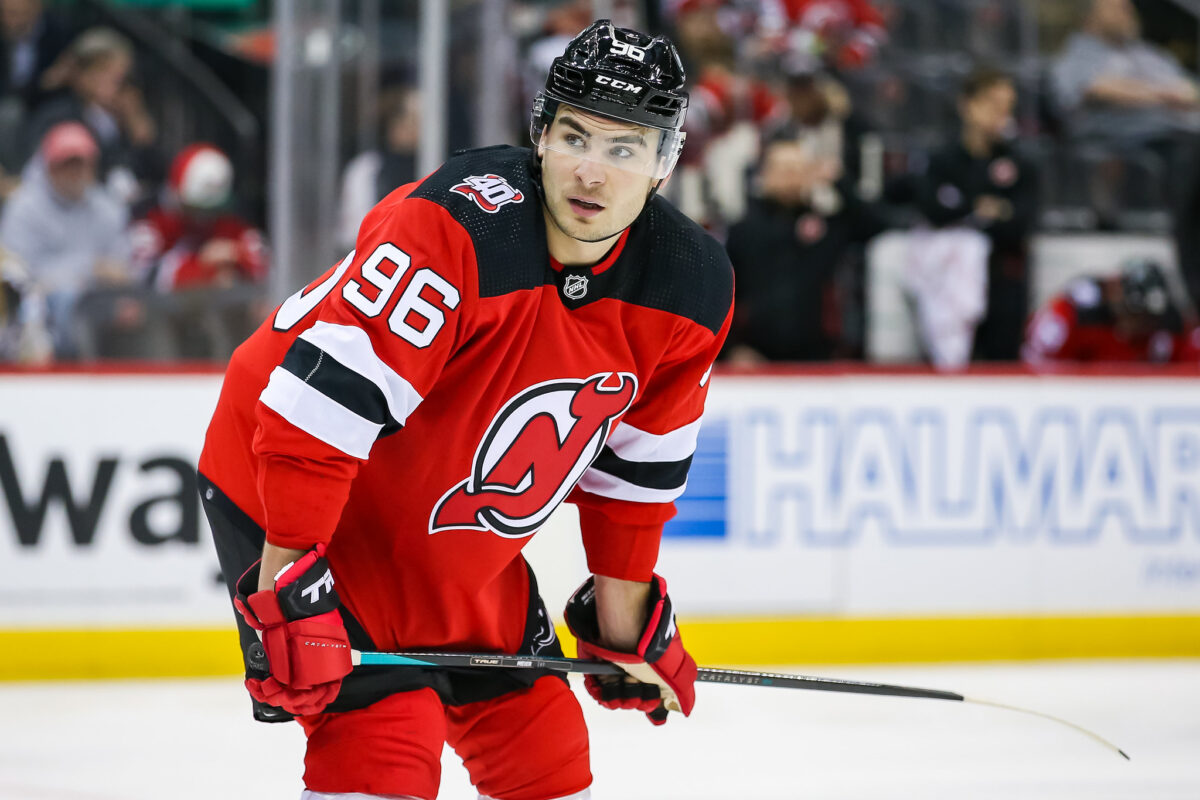
It was too little too late for Meier, who only found his footing in the Devils’ final three playoff games. Aside from his scoring, he did most things right. Thirty-seven hits, 59 percent Corsi For, even his two assists were primary, but his lackluster numbers left Devils’ fans hungry. It is hard to grasp what his next contract will be worth, as he is now a restricted free agent. The Devils may look to retain his talents, and rightfully so. It is doubtful he will ever go scoreless in eight straight playoff games again in his career. During the San Jose Sharks Western Conference Final run in the 2018 Playoffs, he scored 14 points. Meier can produce in the playoffs, but whether that is with the Devils or not in the future will be determined this offseason.
7. Jake McCabe, Toronto Maple Leafs
A cost-controlled top-four defenseman is like gold in today’s NHL, and the price to acquire one is just as expensive. The Maple Leafs paid a hefty but reasonable price to pry Jake McCabe from the Chicago Blackhawks at 50 percent retained. The price, consisting of a conditional 2025 first-round draft pick, a 2026 second-round draft pick, Joey Anderson, and Pavel Gogolev, netted them the defenseman and his teammate Sam Lafferty. A cap hit of $2 million for the next two seasons will be worth it in the long run, and, in a vacuum, looked like a steal during the Maple Leafs’ first-round series against the Tampa Bay Lightning as McCabe and defense partner T.J Brodie became an elite shutdown pair. Unfortunately, the duo, especially McCabe, became a pumpkin the second the Maple Leafs matched up with the Florida Panthers.
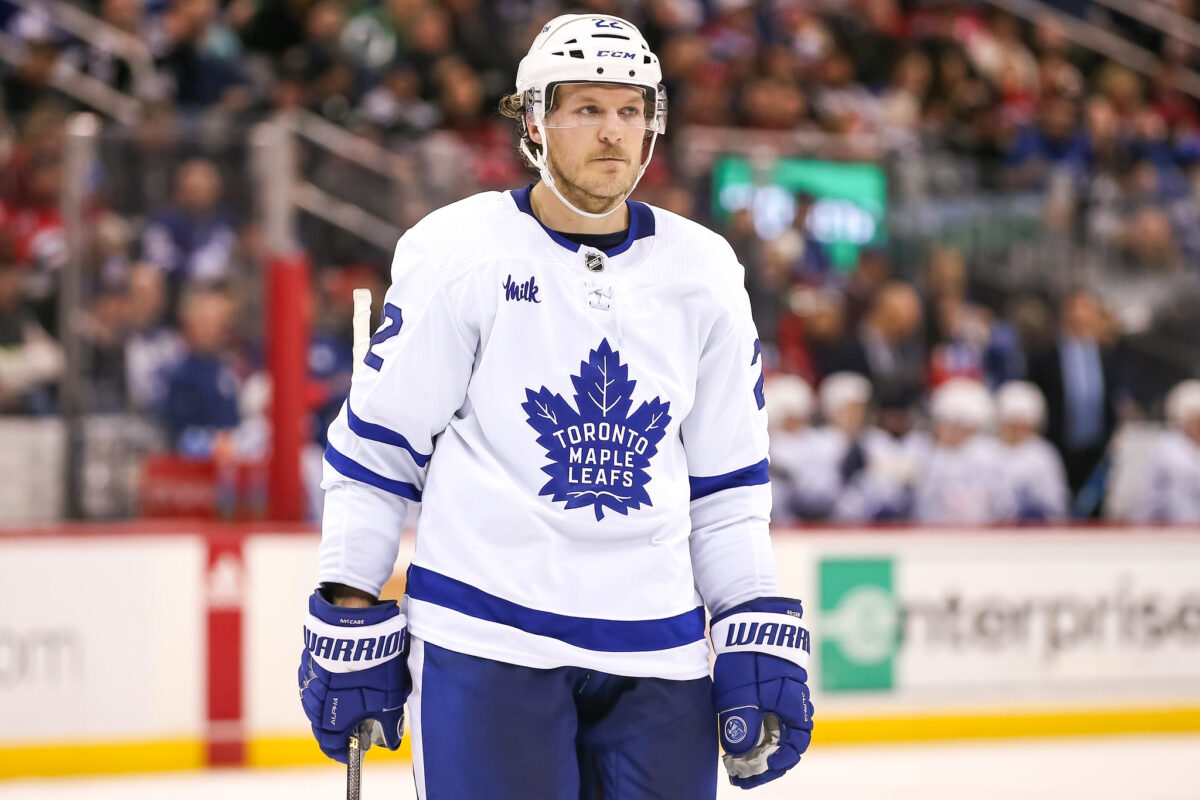
McCabe brought a needed physical presence to the Maple Leafs’ backend but would sacrifice positional soundness for the opportunity to blow up an oncoming attacker. Additionally, as a member of a shutdown pair, expecting an above 50 percent Corsi For is more idealistic than realistic; however, his Corsi For of 40 percent is atrocious, and had a single-game low of 25 percent in Game 4 of the second round. His four takeaways to 13 giveaways, 12 of which came in the defensive zone, proved second-worst behind Morgan Rielly. A negative goal-differential of minus-7 in five games only cements the unfathomable damage the Panthers did to the Leafs’ top shutdown pair.
Related: 3 Reasons the Pittsburgh Penguins Missed the 2023 Playoffs
The 2023 Playoffs were McCabe’s first kick at the can, and it shouldn’t be his last. If the acquisition cost was not so high and high expectations were not envisioned, he might be off this list. Unfortunately, he does not have that luxury. Fans should dismiss any worries about him being a subpar defenseman in the next two seasons for the Maple Leafs, as he will only grow from this experience.
6. Stuart Skinner, Edmonton Oilers
The Edmonton Oilers lacked competent starting goaltending last season, which ultimately was their demise against the Colorado Avalanche in the Western Conference Final. Insert a freshly-signed Jack Campbell on an expensive contract, and we are back to square one. Stuart Skinner, a rookie entering this season, became the goaltending support the Oilers needed. A .913 save percentage (SV%) and 2.75 goals-against average (GAA) during the regular season earned him All-Star status and the deserved starting role entering the 2023 NHL Playoffs. His performance during the postseason resembled nothing of what people saw during the regular season. Skinner’s numbers dropped drastically, with most games ending in a wild-west-style shootout rather than the tightknit playoff action fans expect during the months leading up to summer.
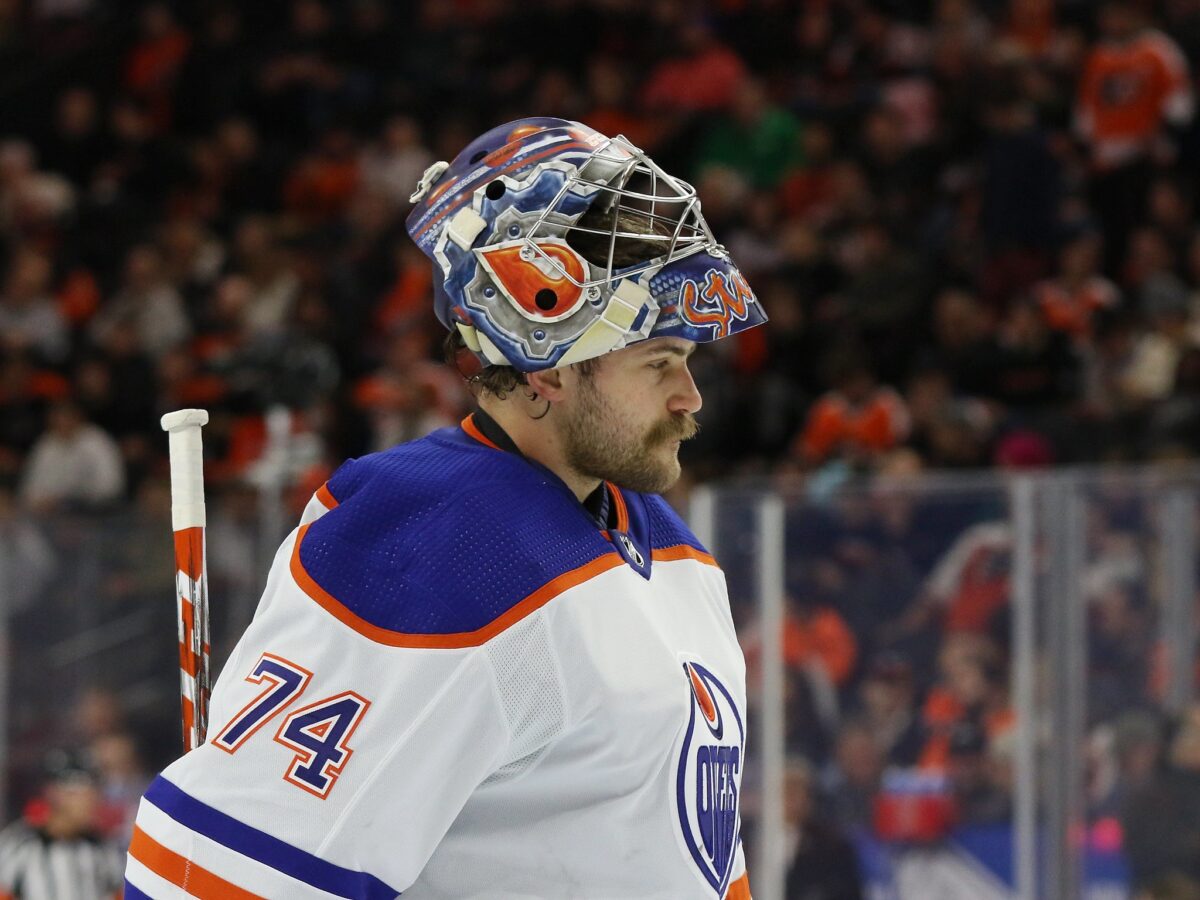
Skinner was arguably the second-worst goaltender to play in the playoffs. The Oilers netminder had a 3.68 GAA and a .883 SV%. The most worrying statistic was his saves above expected of minus-6.2, the second worst of any goalie in the playoffs aside from Vanecek with minus-7.7. Skinner’s struggles behind a reinforced Oilers blue line of Mattias Ekholm was a heinous sight. His future is bright, though, proven by his Calder Trophy nomination for Rookie of the Year. This year will serve as a steep learning curve, but for Oilers general manager Ken Holland, I am curious how many more years Connor McDavid will put up with these trial-and-error postseasons.
5. Ryan Nugent-Hopkins, Edmonton Oilers
Ryan Nugent-Hopkins spent the entire year continuously getting labelled as a power play merchant who benefits from playing with generational talents in McDavid and Leon Draisaitl. Following his postseason, those labels were proven true. He scored 11 points in 12 games. Great, right? Only two points, a goal, and an assist, were scored during five-on-five play; his other nine assists were all on the power play. Credit where credit is due, Nugent-Hopkins is a crucial cog to the historic Edmonton Oilers power play that tortured opponents all season, but, yikes. Tack on being outscored by a margin of five at even strength, and disaster begins to brew.
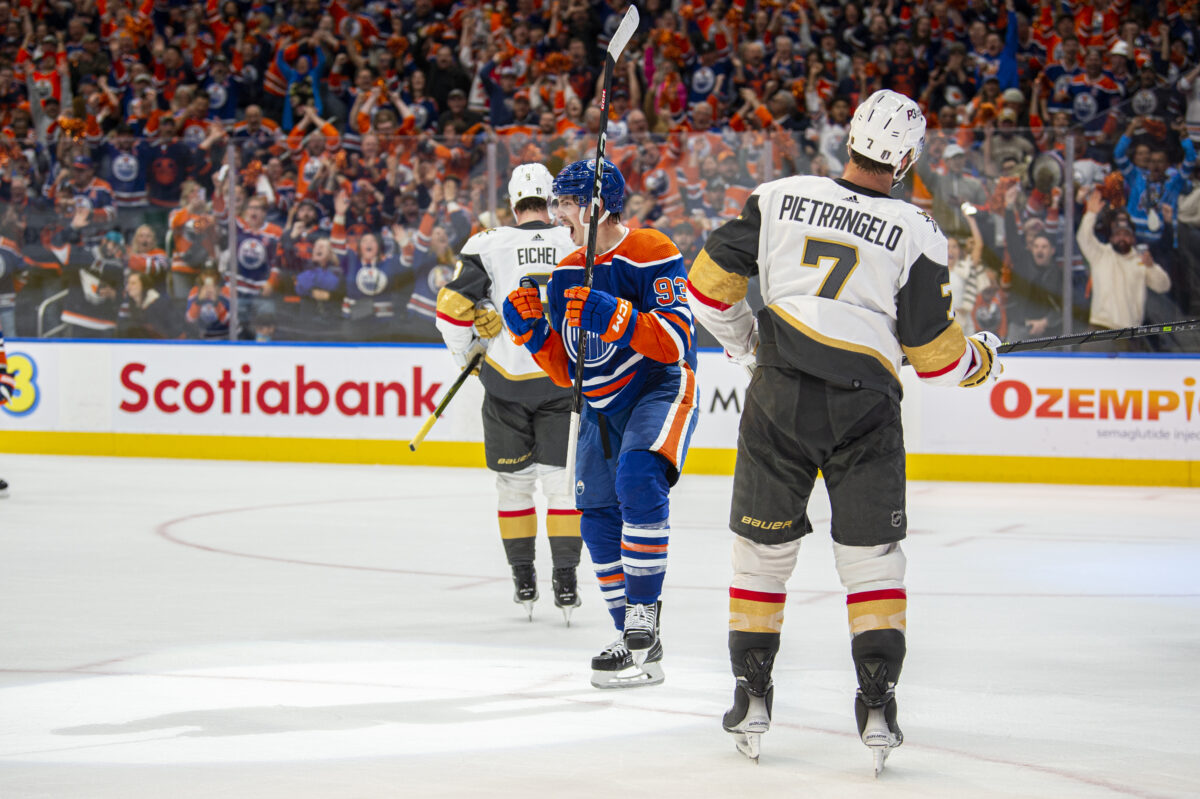
A large part of Nugent-Hopkins’ poor even-strength numbers is due to his poor finishing and shot selection. His shooting percentage was a dismal 4.3. The number can reflect a slight skew towards bad luck rather than disappointment, although 69 percent of his unblocked shot attempts came from low-danger areas. The high percentage equates to one of two things. Nugent-Hopkins shot the puck from questionable areas on the ice, or he could not break through the Vegas Golden Knights’ defense, where over 50 percent of the low-danger shots came. Likely, a combination of the two led to his crummy shooting numbers. The Oilers’ short postseason does not fall on his shoulders alone, but for a 100-point scorer to be as ineffective as Nugent-Hopkins was hurt any Stanley Cup aspirations.
4. Kirill Kaprizov, Minnesota Wild
The Minnesota Wild have yearned for a game-breaking offensive talent since the beginning of their franchise. Mikko Koivu, Zach Parise, and Marián Gáborík are talented first-line players but are nothing like Kirill Kaprizov. In 67 games, he scored 40 goals and 35 assists for 75 points during the 2022-23 regular season. In the playoffs, Kaprizov managed one goal. Granted, he was, like Barzal mentioned earlier in the list, coming off of a lower-body injury, but if we are not giving the benefit of the doubt to Barzal, it is unfair to do the same for Kaprizov. A takeaway-giveaway ratio of two to seven did not paint a pretty picture defensively, but having a flat zero in on-ice goal differential makes up for it slightly.
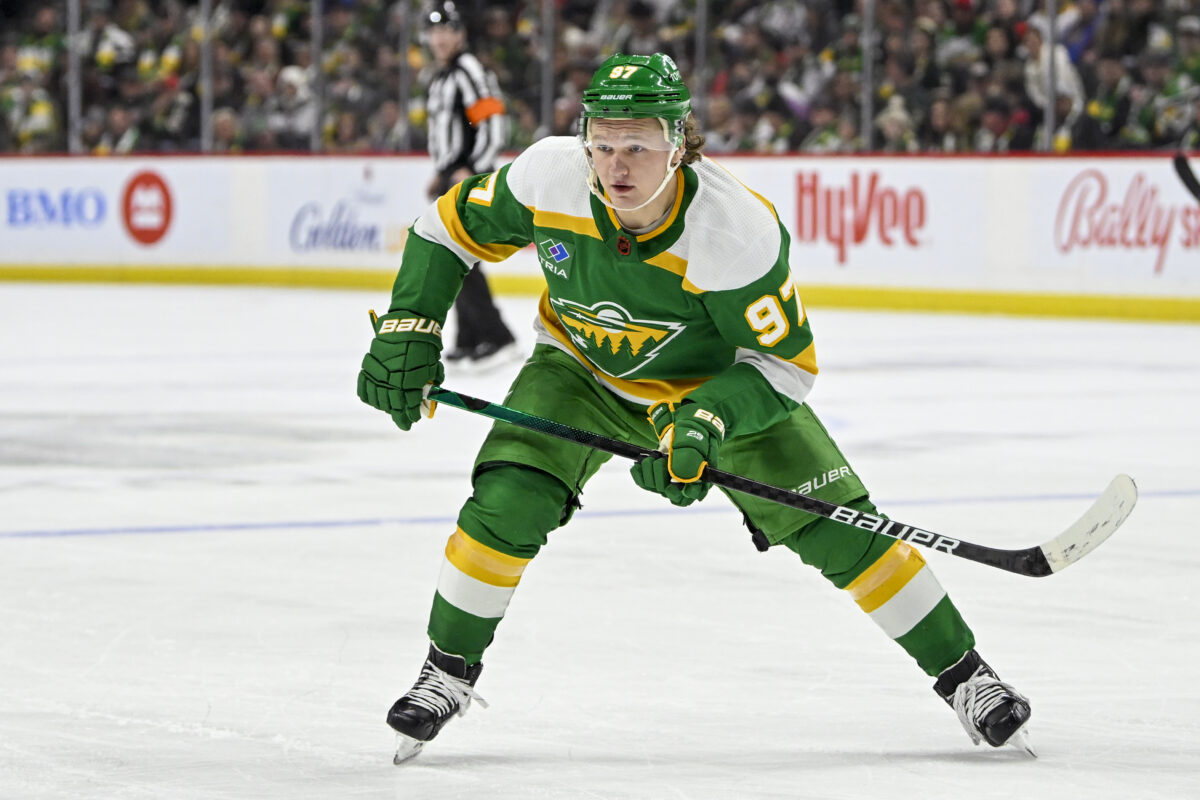
Kaprizov’s single goal is a black mark on his playoff resume, but the underlying numbers surrounding his disaster-ridden playoffs make it far worse. He started 28.7 percent of his shifts in the offensive zone, fifth most of all players to play in the postseason, and fourth behind teammate Mats Zuccarello. Unlike Zuccarello, who scored five points in six games, Kaprizov did not capitalize on the offensive opportunity provided to him. His poor performance put the Wild in a precarious position, as a team unable to add significant depth because of the Zach Parise and Ryan Suter buyouts, was lucky to stretch the series to six against an elite Dallas Stars team. Luck did factor into his low totals, only shooting 5.9 percent, but results matter, and Kaprizov did not provide them for his team.
3. Auston Matthews, Toronto Maple Leafs
Any one of the Maple Leafs’ three highest-paid players could assume this position. The jubilation felt after the organization’s first playoff win in 19 years disappeared following their loss to the Florida Panthers. By all analytical accounts, the Maple Leafs should have won more than one game against the Panthers. Unfortunately, history looks more fondly on the victors rather than the ‘Deserve To Win O’Meter’ winners. The Maple Leafs’ big stars showed up during the six-game series versus the Lightning. Come to their five games against the Panthers, and once again, the Core Four could not buy a goal. Sergei Bobrovsky stifled the hopes and dreams of the Maple Leafs changing the narrative, but Auston Matthews, more than anyone, with his $11,640,250 salary, needed to do more.
Matthews only scored two assists in five games, one during five-on-five play. He went pointless in the final three games as the Maple Leafs had their backs against the wall. Thirteen periods without a point from the highest-paid, best player on the team is near impossible to recover from, especially when that player accounts for 14.1 percent of the cap. Defenders of the forward mentioned the Panthers’ ability to prohibit Matthews from rushing up the wing and getting scoring chances by driving through the neutral zone; however, teammate William Nylander, a proven playoff performer, did so regularly, including on his Game 5 tying goal. Mitch Marner and John Tavares also looked flat, so imagine those two honorarily holding this spot in arms with Matthews. Changes are coming to Toronto this offseason, and it would be a shame if this were the last performance Matthews had in a Maple Leafs’ sweater.
2. Artemi Panarin, New York Rangers
Artemi Panarin is the other $11 million man to make the list, $11.642 million against the cap, to be exact. The Russian superstar had just two assists during the Rangers’ infuriating seven-game series against the Devils. Most criticism against players comes from their inability to score at even strength. Panarin managed to do nothing in all on-ice situations, which is impressively unimpressive.
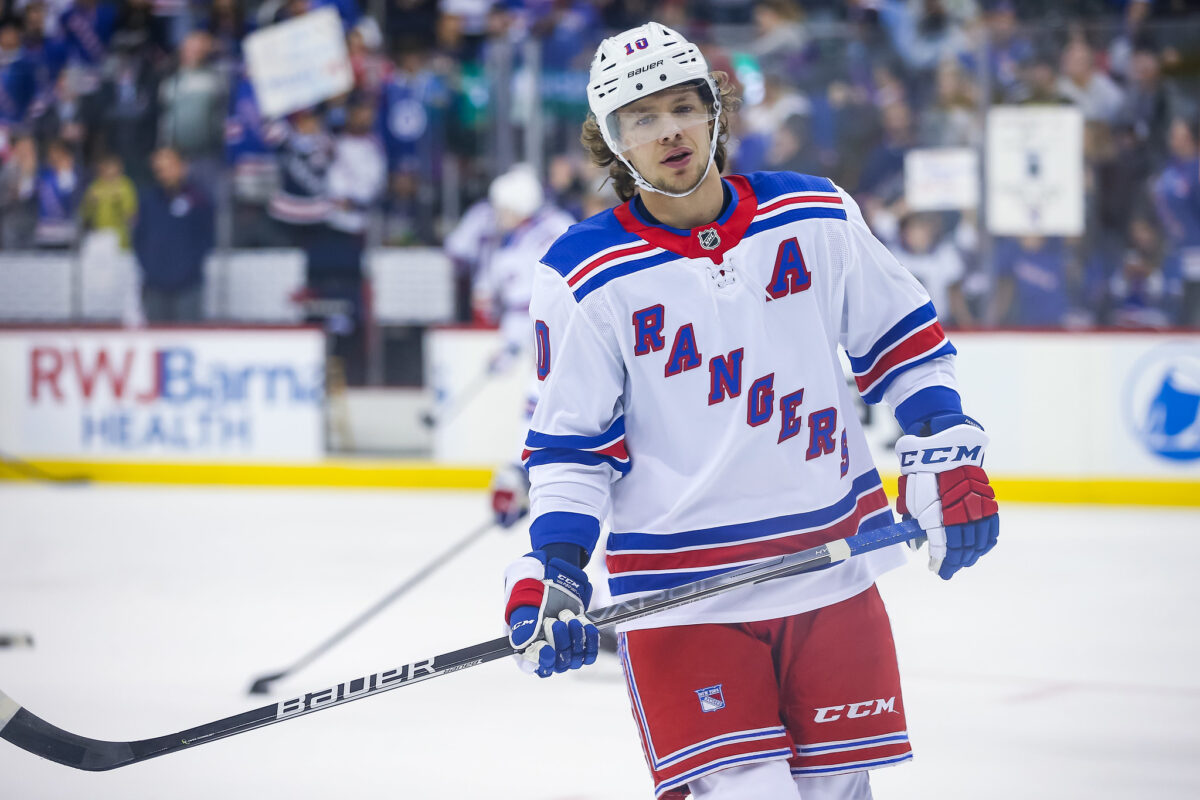
Panarin’s atrocious numbers might not look too bad if most of his other teammates did not execute well. Adam Fox scored eight points, had 56 percent Corsi For, and 11 takeaways. Chris Kreider dominated the Devils, scoring six goals and tacking on three assists. Despite his defensive faults, Patrick Kane managed six points of his own. Panarin looked terrible, not just because his statistics were, but because almost every big-name forward on the Rangers outscored and outplayed him. He does not possess Selke-level defense to make up for his defensive faults, so his staggering scoreless droughts stand out more than other wingers in his pay range. The Rangers are paying Panarin a top-five salary in the NHL, and his continual playoff dips in production tarnish his superstar reputation.
1. The 65-Win, Presidents’ Trophy-Winning Boston Bruins
It is cheating to state that the Bruins are the biggest disappointment of the 2023 NHL Playoffs, but how are they not? A historic 65-win season, breaking countless records, a 3-1 series lead over the eight-seed Panthers, only to choke in the first round. The blame can stretch to almost any player on the roster. Charlie McAvoy was not his Norris calibre self, getting outscored 7-3 at even-strength, Linus Ullmark, while injured, did not look like the probable Vezina Trophy winner, and Patrice Bergeron, while dominating faceoffs, got outscored by four at five-on-five. Their defensive stars let them down with untimely turnovers, and the opportunistic Panthers pounced at every inch given.
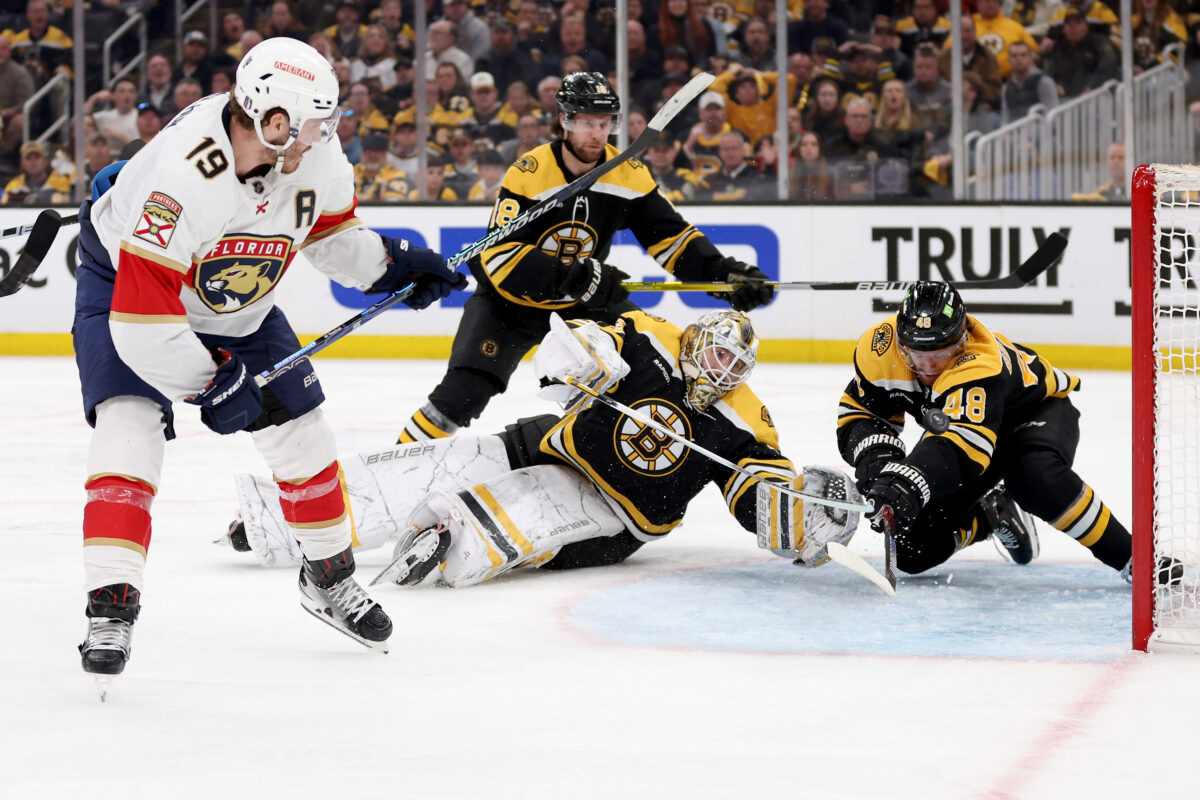
Only four players had a positive on-ice five-on-five goal differential the entire series: Nick Foligno, Hampus Lindholm, Taylor Hall, and Pavel Zacha. Tyler Bertuzzi scored 10 points and had a 61 percent Corsi For, while Brad Marchand also put up ten himself. A modest number of players performed up to standards, but even Marchand, the notorious rat of the NHL, lost to the Rat King in Matthew Tkachuk. Bergeon’s potential last dance went up in flames rather than hoisting Lord Stanley. With a dynamic defense core, Marchand, David Pastrnak, and Hall signed for at least two more years, and the best goaltending tandem in the NHL, the Bruins will be an attractive destination for free agents. However, for now, the disappointment fans feel will linger into next season, always wondering what Bergeron’s swan song could have been.
This list may need revision when the 2023 NHL Playoffs finish, with the potential for underperformance from players on the remaining four teams. Jared Spurgeon, Vanecek, Marner, and Horvat also have reasons to reside in one of the ten spots. For players to succeed, some have to succumb to the heavy expectations placed on their shoulders. Learning and laughing at their mistakes is one of the few healthy ways to approach the last few weeks of playoff action, and uprooting the seeds of doubt in fans’ heads should be a goal for all these players next season.
Advanced stats were taken from Money Puck
